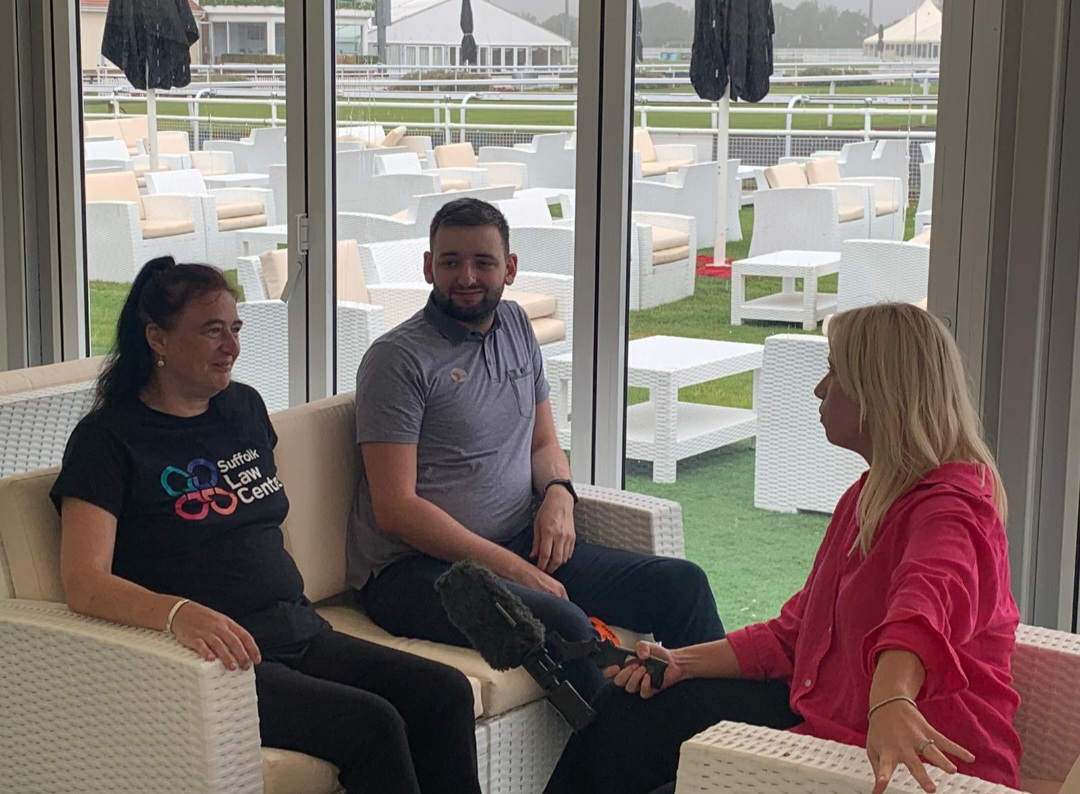- news
Friday, 30th August 2024
The hub model approach to fighting disability discrimination

Suffolk Law Centre recently launched a new resource aimed at helping autistic young people gain employment: the Autism Education Leavers Passport.
The passport was created in collaboration with the Disability Advice & Welfare Network, and provides autistic young people with information on applying to jobs, preparing for interviews, understanding their rights and managing finances.
It can be used alongside the Autism Passport, another resource which supports autistic people to inform employers, hospitals, police stations and other services what reasonable adjustments are required in order to help with communication.
How did this come about?
Only 21.7% of autistic people in the UK are in employment, making them the least likely disabled group to be in employment. The barriers some autistic people face are systemic—they want to work but recruitment processes and the workplace do not reflect their needs.
Suffolk Law Centre has been seeking to change this. In 2023, it began a three-year project aimed at helping disabled people to Join, Stay and Flourish in the labour market.
This project is not just about the legal advice and casework that Suffolk Law Centre provides day-to-day. Instead, the idea is to ultimately do away with cases as more people will be adequately supported in their journey into work and whilst in work.
The vision:
Disabled people know their employment rights, know how and when to challenge discrimination and where to get help when they need it.
Participation in the Disability Rights in Work Hub means employers and employees can be assisted in situations as they arise—preventative measures rather than a road to litigation.
Suffolk Law Centre scaled down the project to focus on an achievable target group. Given that autistic people face the lowest employment rates, this is where the Law Centre has focused its attention first—The Disability Rights in Work Hub has been geared up to support young neuro-diverse people transitioning from education into the workplace (18–25 year-olds).
How does the "hub model" work?
Suffolk Law Centre provides specialist legal advice on reasonable adjustments and disability workplace rights.
Colleges and the University of Suffolk provide careers advice and link young neuro-diverse people with good practice employers.
Employers (local and global) provide workplace assistance programs and implement neuro-diverse inclusion practices. Suffolk Law Centre helps them to access an untapped resource of employees and realise the value they will bring to their organisations.
Disability groups provide diagnosis and support and educate employers and partners on disability.
The Department for Work and Pensions provides disability work coaches and the disability confident scheme.
All partners are of equal importance in the hub. Any of the partners and neuro-diverse young people can seek Suffolk Law Centre's advice and be supported by its legal expertise. The more partners that a young neuro-diverse person engages with, the more access to support they have and the more likely they are to achieve a better outcome.
The Autism Education Leavers Passport is an initiative that was born out of the collaborative work of the hub. See coverage on BBC News.
The bigger picture
Did you know that Suffolk's Disability Rights in Work Hub is not the only Law Centre hub project out there? The Law Centres Network supports hub projects in two other regions of the UK—at Derbyshire Law Centre, and Vauxhall Law Centre in Liverpool.
These projects have increased each Law Centre's capacity to fight systemic injustice by pooling resources, sharing good practice and maximising legal expertise. There's much more that we would like to do, by replicating elsewhere and applying this approach to different issues.
If you like the work we're doing with the Law Centre Hub Project, please consider donating. We thank the Baring Foundation for its ongoing support with this work.
For media enquiries, please contact media@lawcentres.org.uk.
Latest News
Monday, 26th January 2026
Founder of the Law Centres movement celebrated for major contribution to UK legal professionTuesday, 20th January 2026
Unlocking the Power of Data: How Law Centres are Putting Data to Work for JusticeMonday, 1st December 2025
Law Centre housing lawyer celebrated for "energy, empathy and resolve"
Stay in the loop
Sign up for our monthly newsletter to stay in the loop